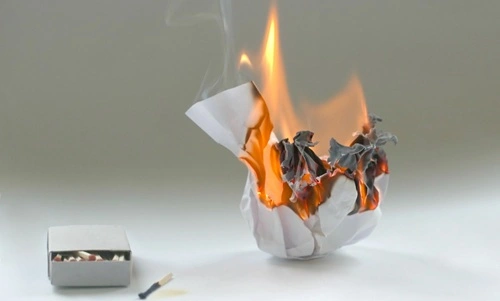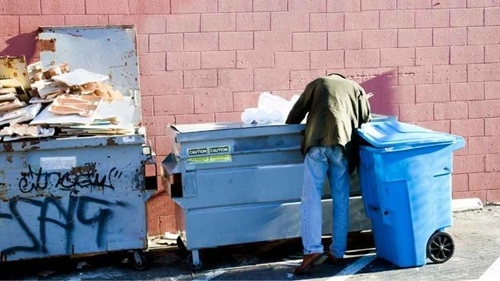Burning paper may seem harmless — after all, it’s just paper, right? However, in the United States, open burning of paper is regulated by federal, state, and local laws due to environmental, health, and safety concerns. Even if the paper is your own, burning it can violate air quality rules, fire codes, and nuisance ordinances, potentially resulting in fines or criminal liability.
Here’s a detailed explanation:

Federal Law: Environmental Regulations
At the federal level, the Clean Air Act (CAA), enforced by the Environmental Protection Agency (EPA), governs emissions from open burning. Burning paper produces smoke, particulate matter, and volatile organic compounds (VOCs), which contribute to air pollution.
While federal law does not explicitly prohibit burning ordinary paper, it restricts emissions that affect air quality in public areas or cross state lines. For example:
- Large-scale burning of paper in industrial or commercial settings must comply with EPA-approved emission controls.
- Burning paper in areas near schools, hospitals, or residential neighborhoods may be considered a violation if the smoke creates health hazards.
In short, federal law primarily focuses on air quality and environmental impact, leaving most enforcement to state and local authorities.
State and Local Laws: The Main Restrictions
Most legal restrictions on burning paper come from state and municipal fire codes, environmental laws, and nuisance ordinances.
1. Open Burning Regulations
Many states classify burning paper as open burning, which often requires a permit or is restricted entirely. Examples:
- California: Local Air Quality Management Districts prohibit burning paper outdoors except in approved fire pits or incinerators. Violators can face fines up to $1,000.
- New York: Open burning of waste, including paper, is generally prohibited under state environmental law, except in controlled, permitted settings.
- Texas: The Texas Commission on Environmental Quality (TCEQ) regulates open burning and generally prohibits burning paper outside of licensed facilities or approved agricultural burns.
2. Fire and Safety Considerations
Even small-scale burns can trigger fire department regulations, especially in residential areas. Improper disposal of burning paper can:
- Cause wildfires or structure fires
- Violate local fire codes
- Lead to civil liability if smoke or fire damages property
Environmental and Health Concerns
Burning paper isn’t just a legal issue — it can also be environmentally harmful:
- Paper smoke contains particulate matter, which can aggravate asthma or other respiratory conditions.
- If paper is colored, glossy, or coated, burning it can release toxic fumes, including dioxins or heavy metals.
- Fires can create nuisance odors and pose hazards to nearby homes, pets, and wildlife.
Because of these risks, many municipalities encourage legal alternatives to burning.
Legal and Safe Alternatives to Burning Paper
Instead of lighting a fire, consider these legal and environmentally safe methods:
- Recycling: Paper can be recycled into new paper products, reducing environmental impact.
- Shredding and composting: Non-glossy, untreated paper can be safely composted.
- Municipal incinerators: Some cities operate licensed waste-to-energy facilities that legally and safely burn paper for energy.
- Professional destruction services: For sensitive documents, companies provide secure shredding and disposal without violating laws.
By using these alternatives, you avoid legal liability while reducing pollution.
FAQs About Burning Paper in the U.S.
Q. Is it illegal to burn paper on my property?
It depends on your state and local fire codes. Most areas require a permit or prohibit outdoor burning entirely.
Q. Can I burn shredded documents or confidential paper?
Even for privacy reasons, burning must comply with air-quality and fire regulations. Consider secure shredding services as a safer, legal alternative.
Q. What if I burn paper in a fireplace or wood stove?
You can burn small amounts of clean, untreated paper in a properly designed fireplace or stove, but avoid glossy, coated, or colored paper due to toxic fumes.
Q. What are the penalties for illegal paper burning?
Violations vary by state but may include fines ($100–$1,000+), misdemeanor charges, and liability for damages if the fire spreads.
Q. Are there environmental concerns with burning paper?
Yes. Smoke contains particulate matter and VOCs, which can harm human health and contribute to air pollution.
Conclusion
Burning paper might seem harmless, but it is heavily regulated in most U.S. jurisdictions due to fire safety and environmental concerns. Federal law focuses on air pollution, while state and local authorities enforce open-burning permits, fire codes, and nuisance laws.
For privacy or disposal purposes, the safest options are recycling, shredding, composting, or using licensed waste facilities. Following these legal alternatives protects your health, the environment, and ensures you remain compliant with U.S. law.

